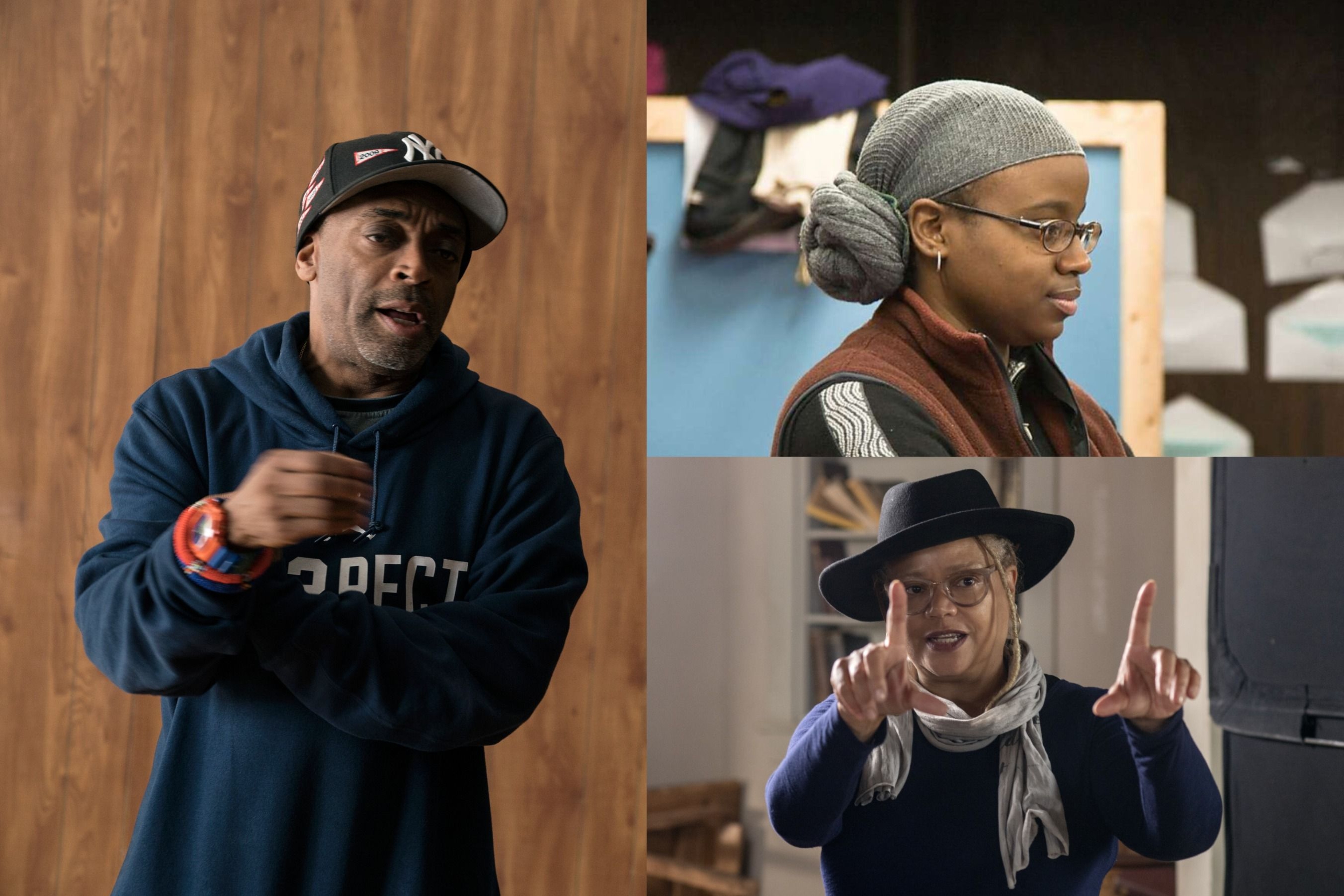Since 1976, the United States has officially recognized February as Black History Month. This year, the annual observance is focusing on Black Resistance and the ways that “African Americans have resisted historic and ongoing oppression, in all forms,” according to the Association for the Study of African American Life and History.
To celebrate Black History Month, we’re highlighting African American filmmakers who have woven Black history and resistance into their stories in poignant and powerful ways. From biographies of resistance fighters like Harriet Tubman to the intimate dramas of African American families in modern New York City, these creators tell a rich and resonant history of America.
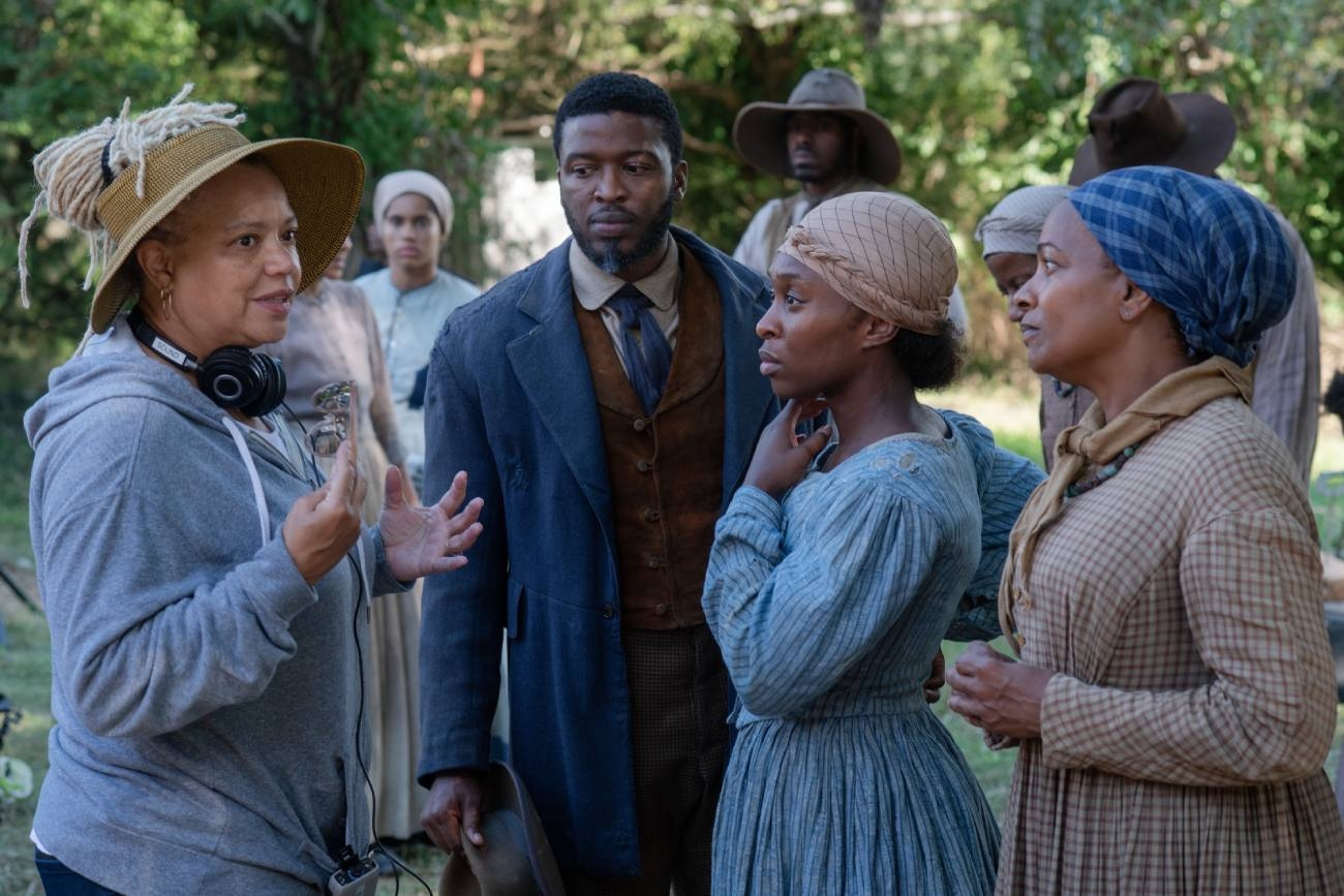
Director Kasi Lemmons with Zackary Momoh, Cynthia Erivo and Vanessa Bell Calloway on the set of Harriet
Kasi Lemmons | Talk to Me & Harriet
“I’m very interested in African American history and American history,” says Kasi Lemmons, pointing out that for her, “They are the same.” In her 2007 feature Talk to Me, Lemmons showcased the life of Ralph “Petey” Greene (Don Cheadle), an ex-con who became one of Washington, D.C.’s most popular and unpredictable radio personalities. After the assassination of Dr. Martin Luther King, Greene famously made statements on-air to reassure his audience on that terrible day. “This unexpected angle on the King assassination, focusing on the pain of the living, is handled by Lemmons with deep feeling,” wrote Roger Ebert. Meanwhile, in Harriet, Lemmons brought to the screen a giant of Black history, Harriet Tubman (Cynthia Erivo in an Academy Award®-nominated performance). In helming the first feature film dedicated to the American legend, Lemmons told NPR that she wanted to respect Tubman’s extraordinary achievements, refusing “to rob her of either her womanhood or her superheroism, because we need our Black women superheroes.”
The official trailer for Harriet
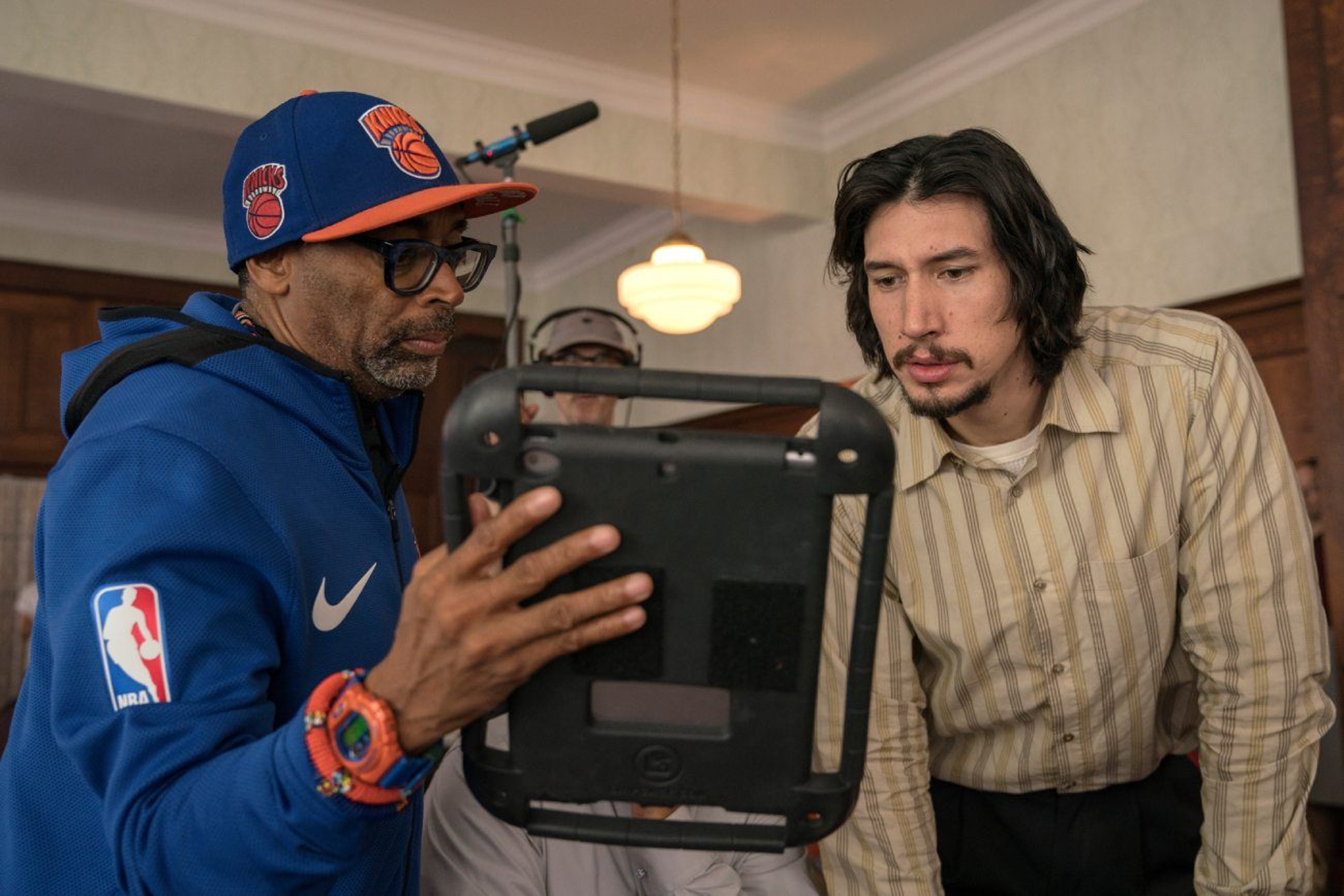
Writer/director Spike Lee and Adam Driver on the set of BlacKkKlansman
Spike Lee | BlacKkKlansman
In making BlacKkKlansman, Spike Lee heeded the famous William Faulkner quip, “The past is never dead. It's not even past.” The film tells the true story of Ron Stallworth (John David Washington), a Colorado Springs detective who joined the KKK with the help of his partner (Adam Driver) in order to uncover a local conspiracy. Throughout his career, Lee has told stories that made Black history both immediate and poignant. Rather than leave this remarkable tale in the 1970s when it originally occurred, the Academy Award®-winning writer/director made it feel immediate and present. “It cannot be just a history lesson,” Lee remarked in The New York Times. “It has to be contemporary.” The result was a critically acclaimed powerhouse that showed its audience the reality of the world they live in. “BlacKkKlansman uses history to illustrate how we’re repeating it,” writes Slate.
The official trailer for BlacKkKlansman
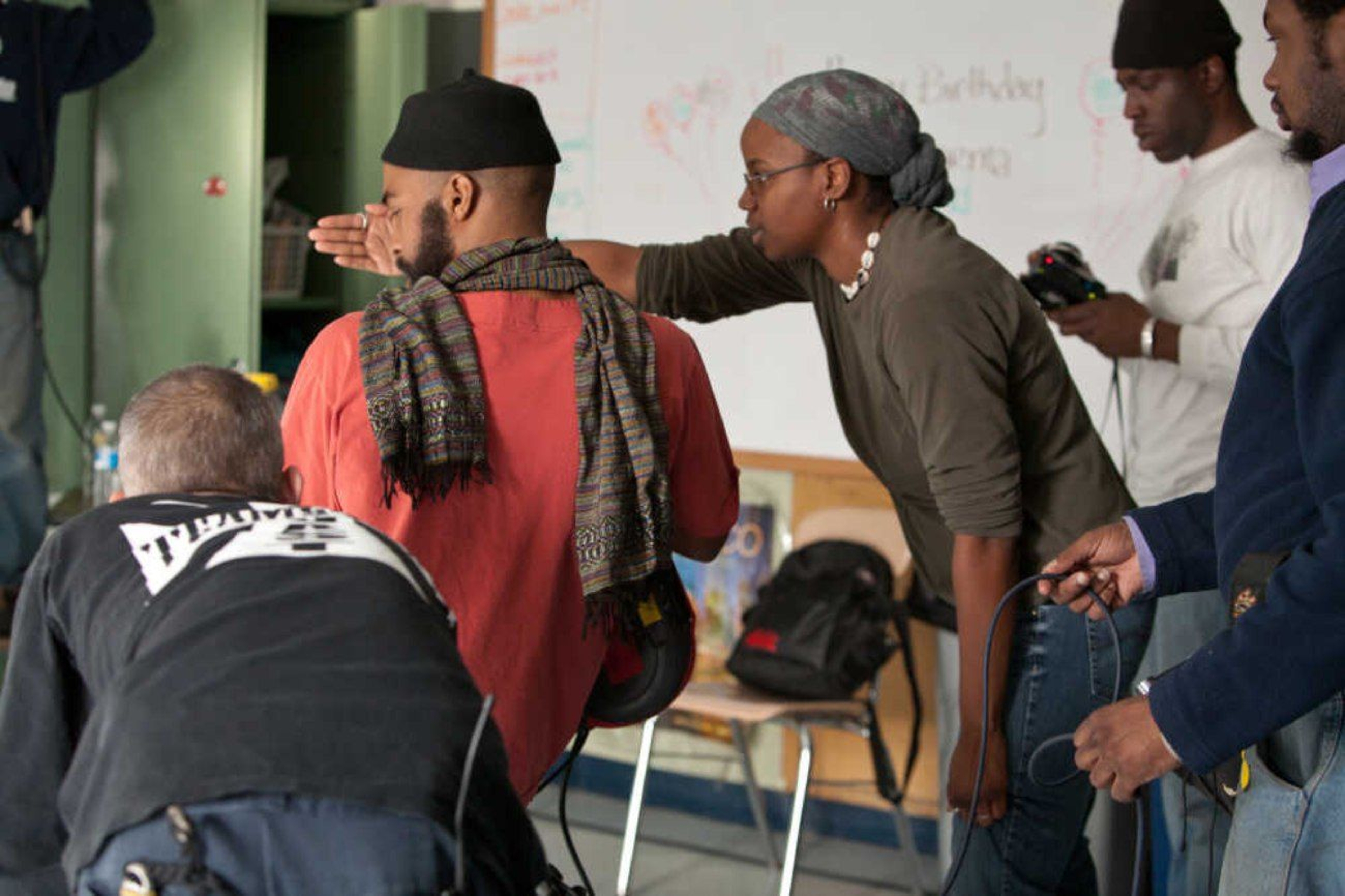
Writer/director Dee Rees on the set of Pariah
Dee Rees | Pariah
In her first feature, Pariah, Dee Rees highlights a rarely seen facet of Black history by capturing the reality of her main character, Alike (Adepero Oduye). An African American teen growing up in Brooklyn in the 21st century, Alike defies everyone’s expectations, including her own. The New York Times reported that “Pariah is important, not simply as a promising directorial debut, but also as the most visible example of the mini-movement of young Black filmmakers telling stories that complicate assumptions about what 'Black film' can be by embracing thorny issues of identity, alienation and sexuality.” Rees’ deeply personal story brings to light what so often has been hidden. For Mother Jones, “Pariah leaves you aching, not only because of the story it tells, but because it whispers softly of all the stories that haven’t been told.”
The official trailer for Pariah
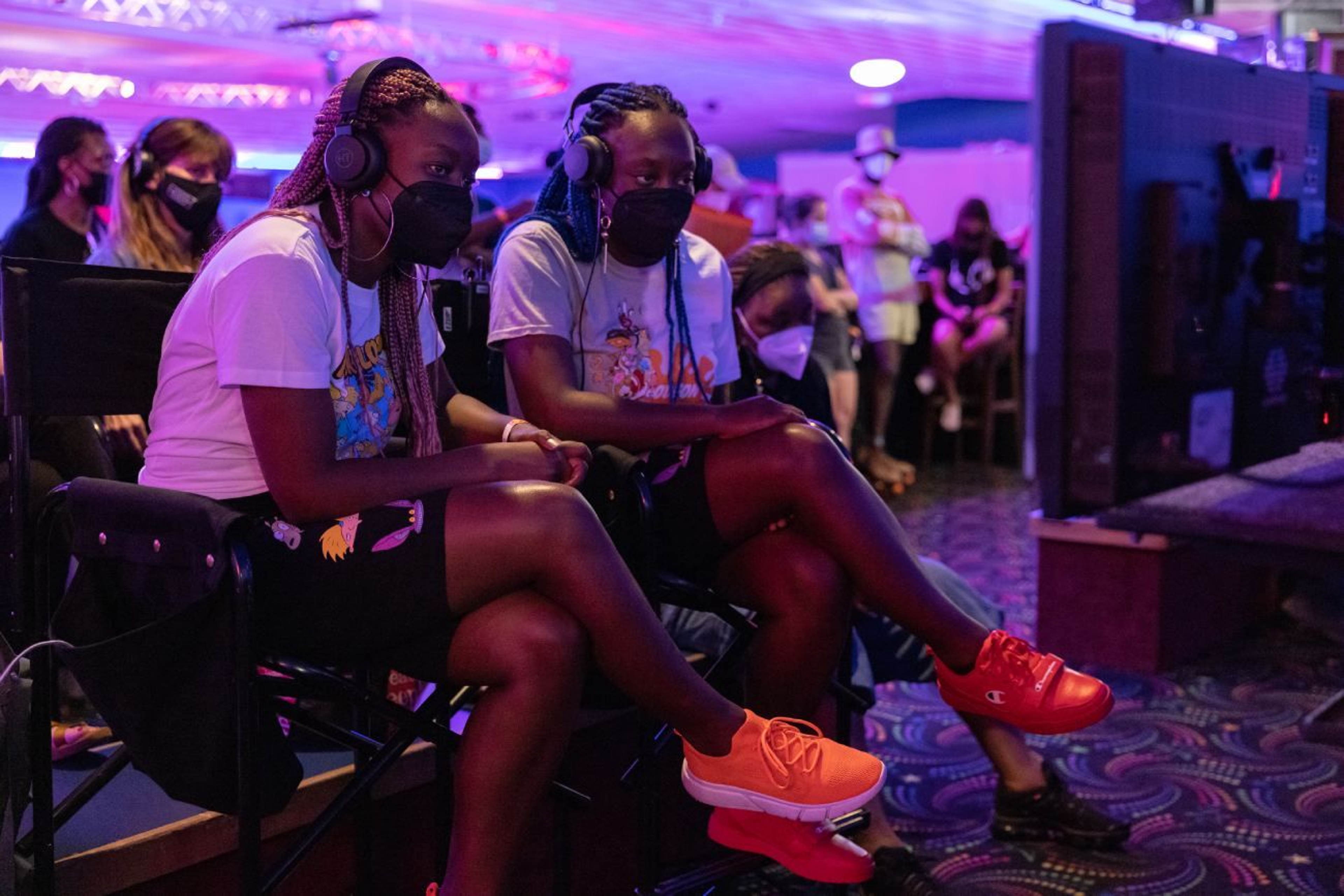
Writer director Adamma Ebo and producer Adanne Ebo on the set of Honk For Jesus. Save Your Soul.
Adamma Ebo | Honk For Jesus. Save Your Soul.
In Honk For Jesus. Save Your Soul., filmmaker Adamma Ebo explores an aspect of African American culture that is particularly meaningful to her—the world of Southern megachurches. Crafting her comedy as a mockumentary, the film captures the efforts of Trinitie Childs (Regina Hall) and her husband, the pastor Lee-Curtis Childs (Sterling K. Brown) to rebuild their congregation in the aftermath of a public scandal. Having grown up in that world, Ebo felt it imperative to acknowledge her characters’ humanity, even as she unmasks their hypocrisy. “We wanted to find a balance of questioning and critiquing this institution, and still celebrating it,” Ebo told IndieWire.
Watch Honk For Jesus. Save Your Soul. on Apple TV or Amazon now!
The official trailer for Honk For Jesus. Save Your Soul.
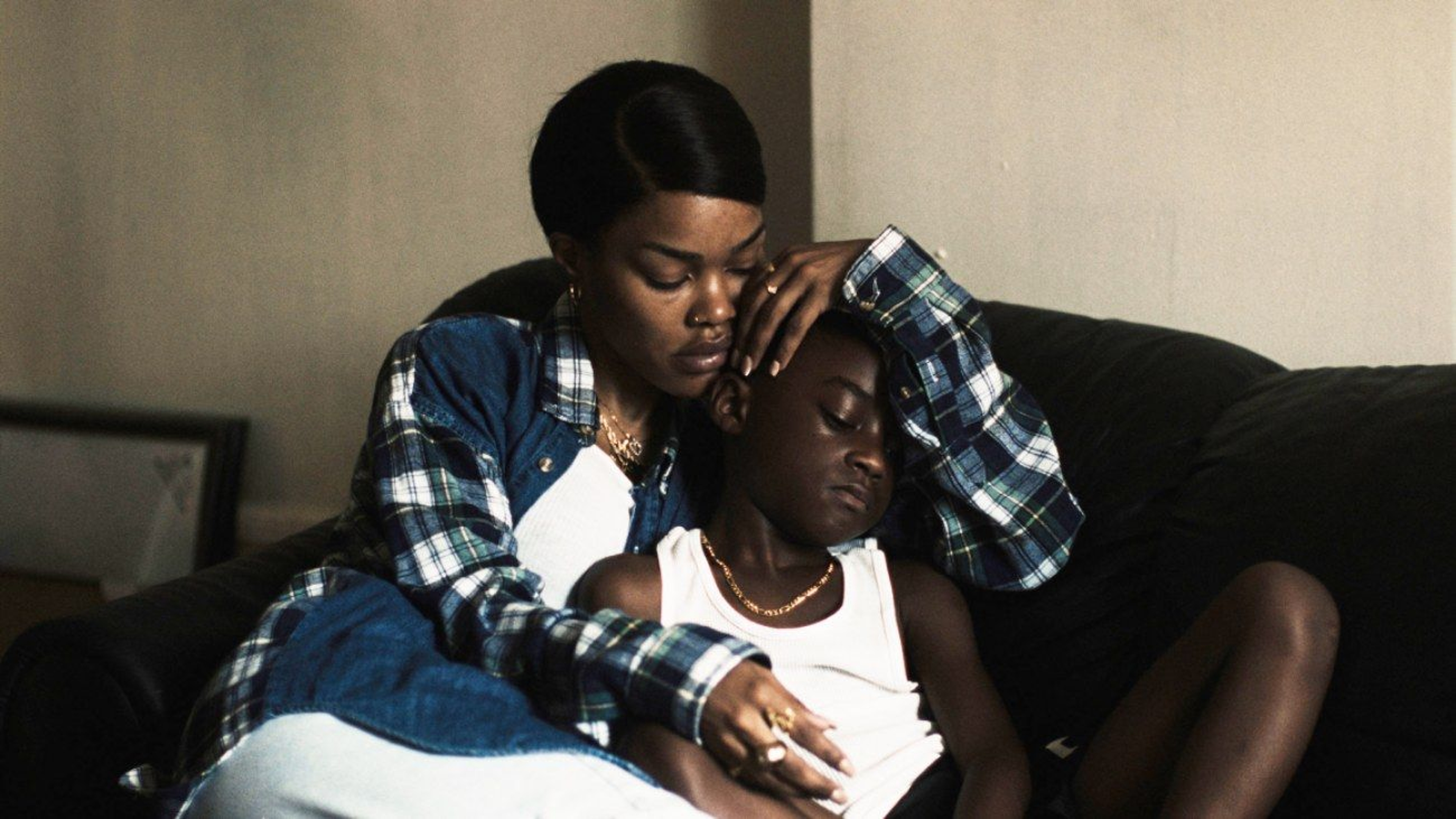
Teyana Taylor and Aaron Kingsley Adetola in A Thousand and One
A.V. Rockwell | A Thousand and One
In A.V. Rockwell’s A Thousand and One (in theaters March 31), the heartrending struggle of a mother (Teyana Taylor) raising her son in New York City captures the history of the city they live in. Drawing on her experience as a native New Yorker, Rockwell knew firsthand how the city changed. In an interview with Women’s Wear Daily, she says, “…I started to realize that communities of color were being targeted specifically, and it felt like we weren’t just migrating to new neighborhoods—we were being pushed out of the city completely.” In the film, Rockwell poignantly shows how this mother and son are caught in the crushing politics of NYC. “What makes the canvas much more expansive than the central focus of home and family is the acute observation of changes to the fabric of life in New York City over Giuliani’s time as mayor and into the Bloomberg years,” writes The Hollywood Reporter. The movie won the Grand Jury Prize at the 2023 Sundance Film Festival.
Watch A Thousand and One on Apple TV or Amazon now!
The official trailer for A Thousand and One
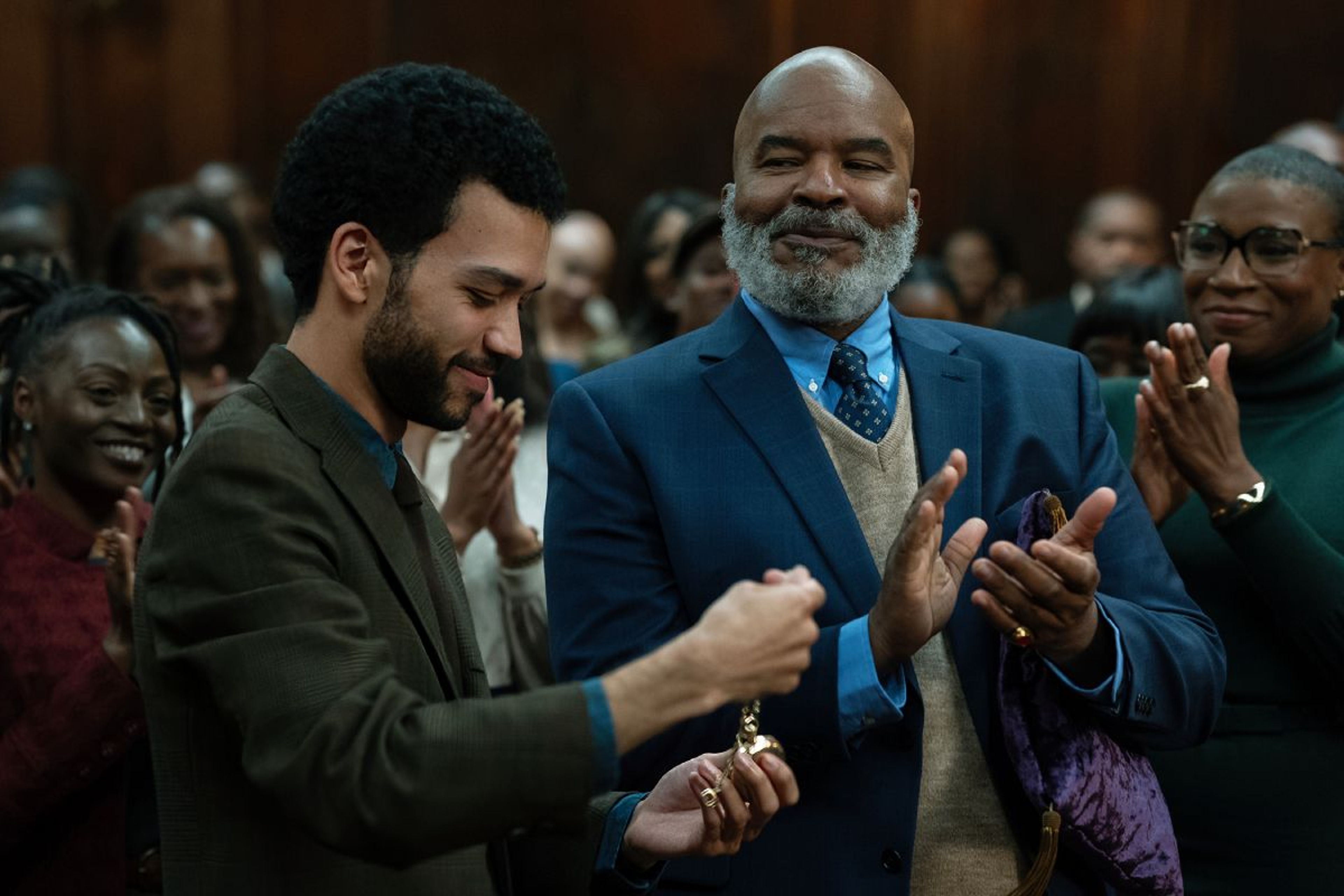
Justice Smith and David Allen Grier in The American Society of Magical Negroes
Kobi Libii | The American Society of Magical Negroes
In his debut feature The American Society of Magical Negroes,writer-director Kobi Libii takes a whimsical and audacious look at race and representation. When a struggling artist (Justice Smith) is invited by a mysterious stranger to join a secret organization set on fighting white discomfort, his life and sense of identity are turned inside out. As a correspondent for “The Opposition with Jordan Klepper,” Libii honed his understanding of satire to zoom in on the absurdity of everyday life. In his film, Libii took the historical trope of the “magical negro” to a level of fantasy. “It's fantastical because the things Black people have to do to survive in America are hard to believe,” Libii explained in a FocusFeatures.com exclusive interview. “Absurdity, hyperbole, fantasy—these are the best ways to talk about what's happening.” Variety writes, “The American Society of Magical Negroes is a deftly observant fantasy comedy that stays true to its own irreverence.”
Watch The American Society of Magical Negroes now!
The official trailer for The American Society of Magical Negroes
